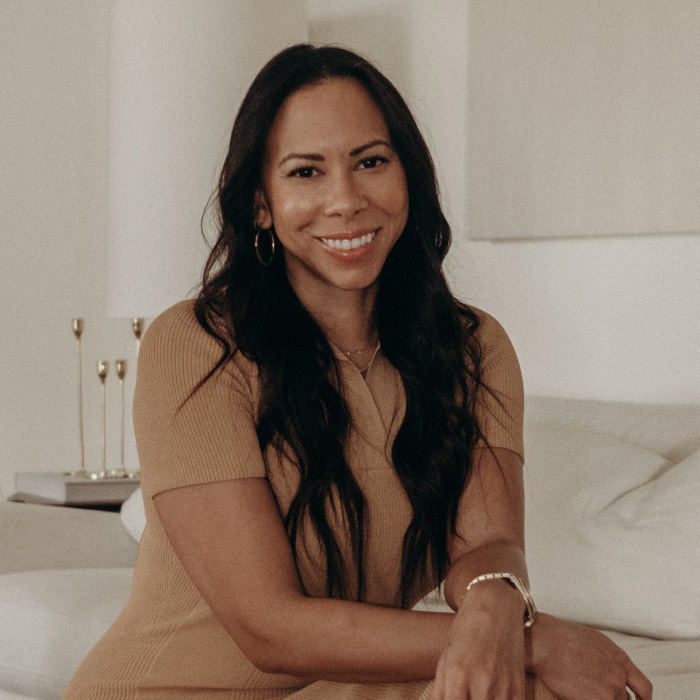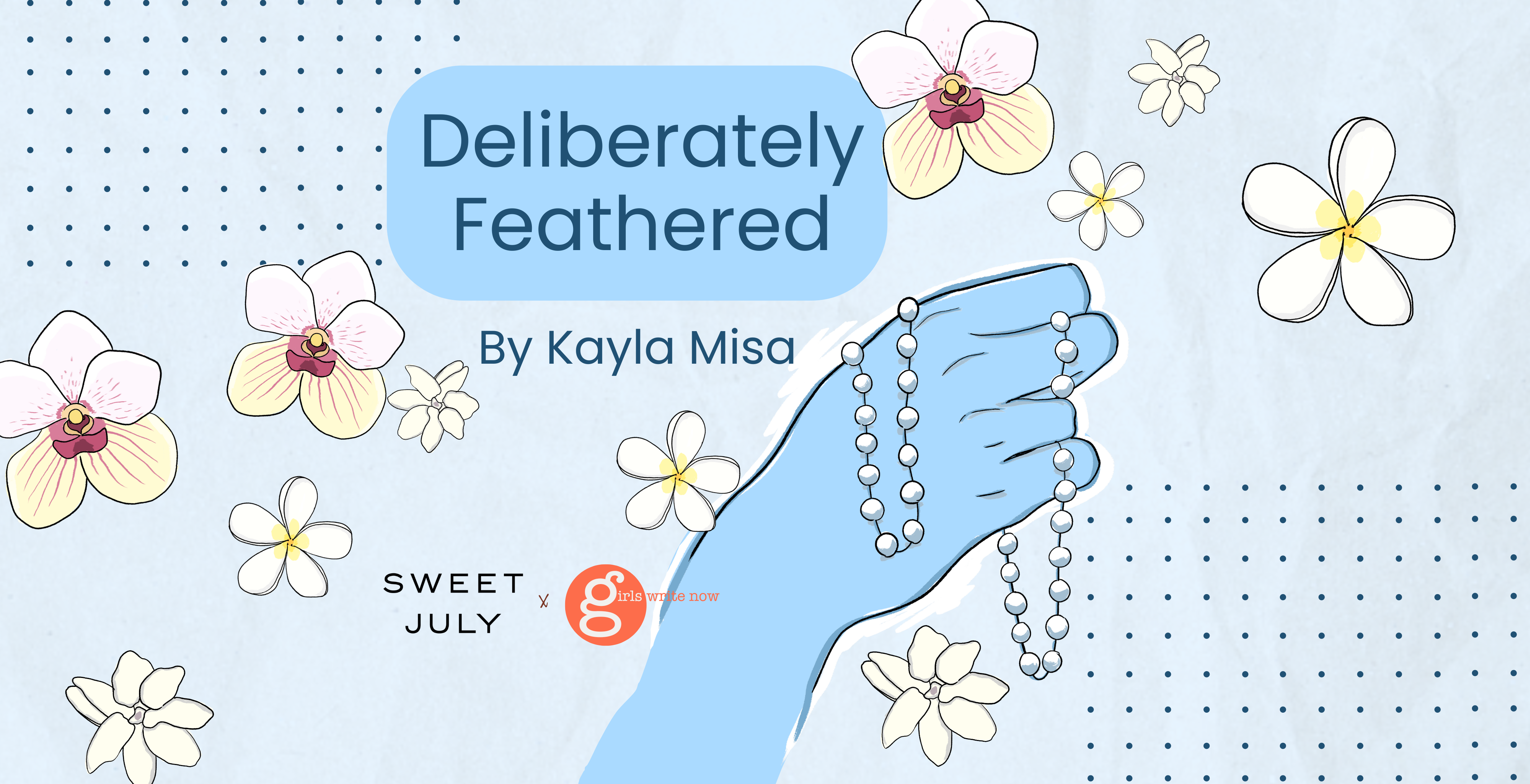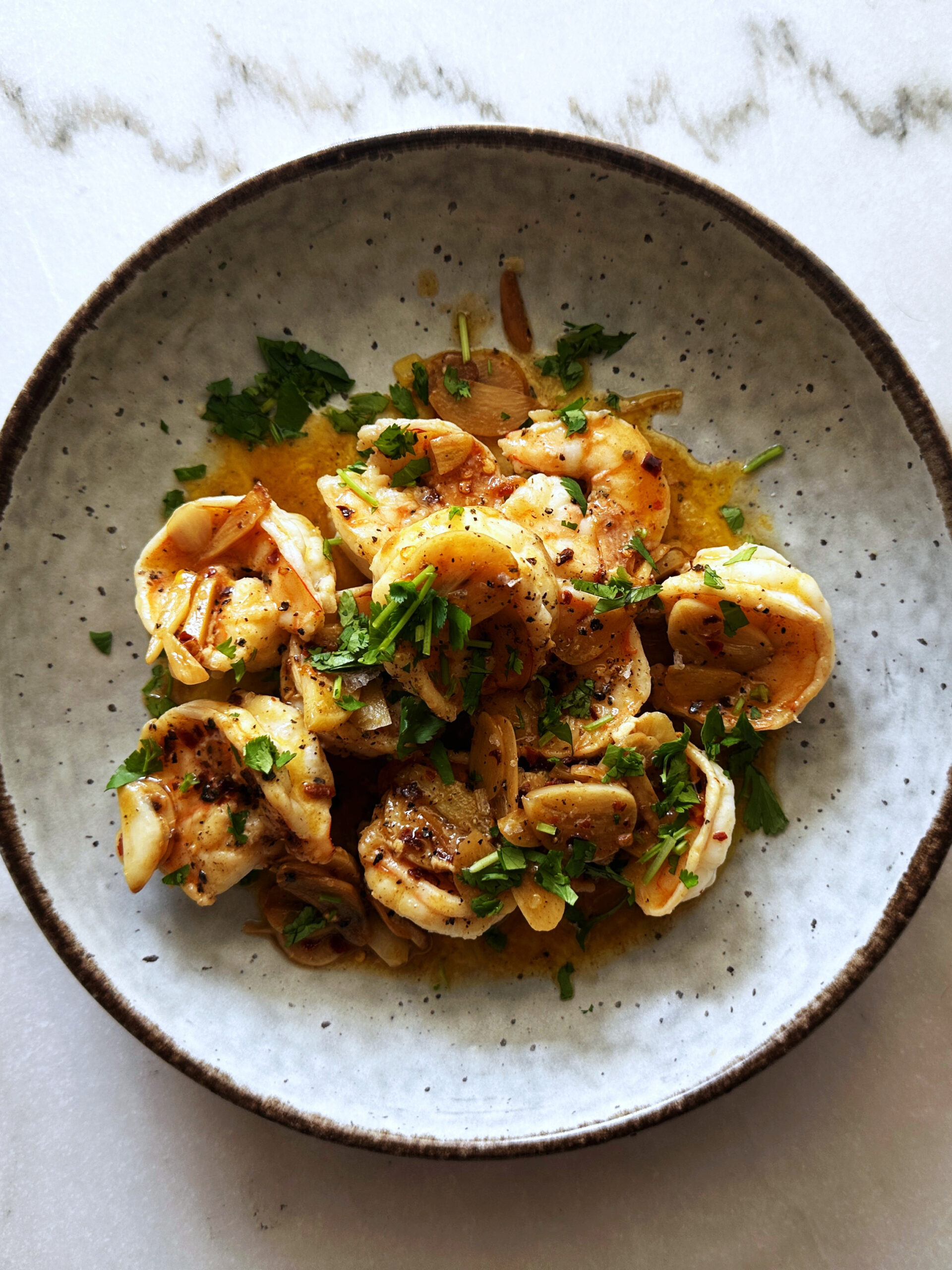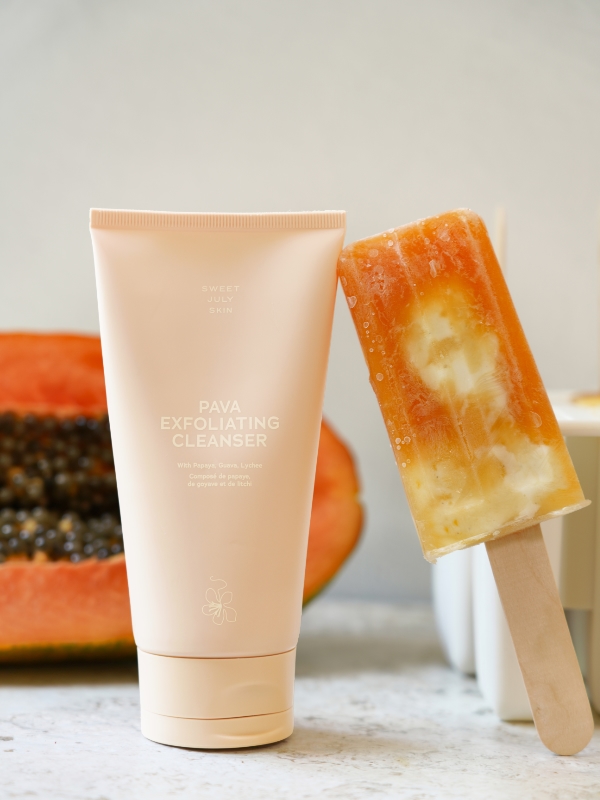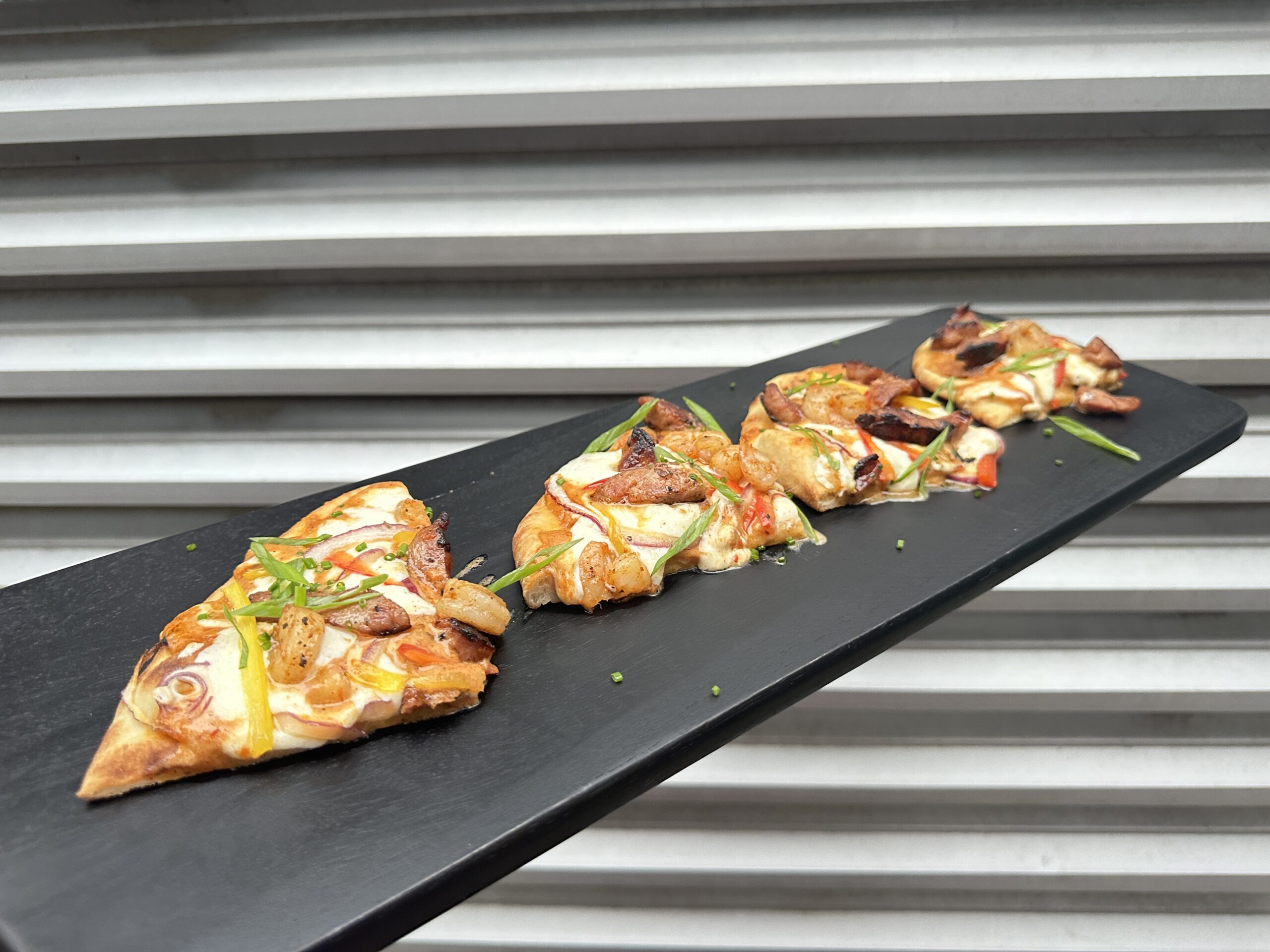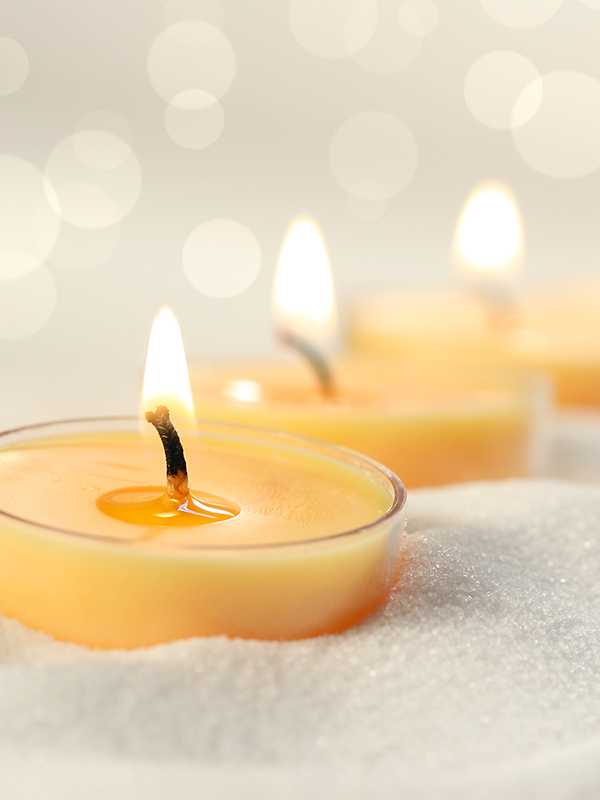This piece is the winner of the Sweet July x Girls Write Now Contest: Passing Down Our Stories. Writer: Kayla Misa; Illustration by Asma Al-Masyabi; Editor: Joanna Szeto. Read the runner-up piece here.
I was four when my parents presented our first rosaries to my twin brother and I. Before us dangled, two child-sized wooden necklaces; hazel beads separated by the Five Decades, and a silver crucifix with a stick-figure Jesus embedded on the metal. I remember my grubby hands feeling ruggedly cut spheres against wrinkles in my palm, my childish fingertips grazing over the contours of the crucified figure. This necklace symbolized more than a religious artifact; it was a conduit to my Filipino heritage, a bridge to the sacred ritual of prayer echoing through generations.
And how I cherished it. With rope and twine draped around my neck, I felt a sense of kinship with my parents, eager to emulate their dedication to Catholicism. I was unfiltered in my desire for their approval, yearning to bask in the warmth of their affection. This rosary was my gateway to gain their adoration, and to show the utmost deference to my parents. Two rules in the house reigned supreme:
One—Worship God through your blind devotion of prayer.
Two—Filial piety above everything.
The rest of the commandments on the stone tablet naturally followed after.
My twin and I took turns threading the rosary through death anniversaries and holiday dinners—a constant companion always pressed to my chest, its presence bringing me solace. The heaviness of the cross was my pleasure to carry. It was a tangible reminder of my unwavering faith—the blistering statue of His flesh against me upholding the virtues of being a humble Filipino child, and above all, allowing me to serve as an enlightened disciple of God.
I never questioned my beliefs, and I never questioned my parents. It was a pair that was inseparable—the same perpetual prayers that spilled from my mouth, and the unchanged bent necks accompanied by hanging heads in onerous obeisance—wound willingly through the rosary.
Yet, beneath the facade of piety and obedience, my queerness was threatening to upend our perfectly curated familial harmony. Between juggling the act of a quizzical adolescent grappling with their queer identity and playing the role of a traditional daughter, I knew that the eventual discord could disrupt decades of teachings and practices that have been passed down to me. Confusion and uncertainty tinged my vision; the vibrant pantheon of saintly statues upon my altar that so proudly hung my rosary seemed to lose their colors as I looked further inward.
I was 13, sitting in a weathered pew at church, my second home. I listened to the sermon of the priest. In his emerald chasuble adorned with gold lining, he preached,
“We must pray for those who stray from the path of conventional marriage,” his voice heavy with judgment.
At that moment, the wooden rosary around my neck tightened like a burning noose and I was robbed of my sanctuary.
The rosary was transfigured into a painful reminder of how I was undeserving in Christ’s omniscient gaze. Innumerous Hail Marys meandering with their processions off my tongue, pushed through the laced veil of my lips, thirsting for the wine that would give me a solution. Feeling the indentations of the beads on my skin, I’d stare into the Virgin Mary’s eyes that watched me from the graying shelf in my room, pleading for guidance. The beads searched for an answer from God within my hands, the grief in my heart looked for its Garden of Gethsemane. If I was made in His image, what fault of His in my human body was deemed punishable by other men?
To my Filipino parents, I was their angel to be tied to a man in holy matrimony, not a daughter who could someday walk down the aisle to another woman. Despite their steadfast love and diligent efforts in raising me, I felt that respect in our house came with conditions. I looked into my own tired eyes and saw a traitor doubting her fealty to her parents. Do I stay as a torn individual, continuing to bow and beg for mercy at my parents’ feet to meet expectations just for a peaceful existence?
I was sixteen, and somberly praying the Angelus with my twin. Dusk was casting its candlelit glow on our altar. I paused and took him aside, fearing I was about to break the strong bond I’ve had with him since birth.
“I can’t keep lying to you about who I am. I’m queer,” I whispered.
I watched his face turn into the sun, and he pressed his own rosary softly into my hands. He didn’t need to say anything else; his silence rang brilliantly in the dark.
The rosary, once my ensnarement, had become my spiritual guide to self-respect and inner peace. Each bead brought renewed liberation, a reaffirmation of my worthiness in His eyes. I stood tall in my queerness, a testament to God’s unquestioning love. As my hands stay interlocked in veneration, my legs meeting with the wood of the Canterbury kneelers, I revel in the fact that I had His all-accepting passion. I did not always need praise and acclaim to come from between my parents’ teeth.
Today, I realize that true piety lies not in blind obedience, but in the valor to understand and embrace our authentic selves, living candidly through the divine spark that resides within us all. And so, I continue to carry and wear my rosary with pride—a reminder of the journey that brought me to bear my personal halo, deliberately feathered.



